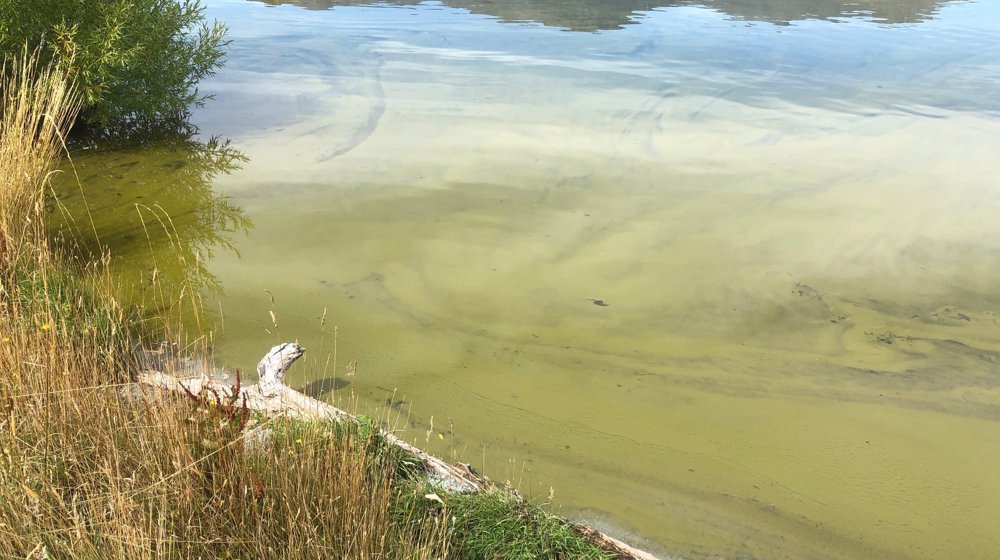-
-
-
-
-
-
-
-
-
-
-
-
-
Pollution
-
The ORC plays a vital role in preserving Otago's natural resources by implementing rules to prevent pollution and environmental harm across the region.
Otago is a big region, and we rely on the public to let us know if you see pollution of air, waterways, land or the coastal marine area. You can find out more below about how to report pollution and what happens next.
The ORC is responsible for looking after our region’s natural resources. To help us do this, we have rules to prevent pollution harming the environment.
If you see pollution, please call our 24/7 pollution hotline on 0800 800 033 straight away.
You can also report pollution through our reporting form (this is checked during business hours) or email pollution@orc.govt.nz.
How quickly we know about an environmental incident makes a huge difference to how well we can investigate it.

Pūrokohia he parahaka Report pollution
If you notice air, water, or land pollution in Otago, call the Pollution Hotline which is staffed 24/7 on 0800 800 033 to report it or fill in the form.

Water pollution - should I call the Pollution Hotline?
We often receive reports from our community of pollution in our waterways. A lot of these reports are due to pollution incidents, but sometimes they are naturally occurring phenomena.
It is important to report any instance of pollution to water, air or land in Otago or any other breach of our Regional Plans or the Flood Protection Management Bylaw. For more information about activities that may cause pollution and what is prohibited in the Otago region, please see our Water Plan, Air Plan and Waste Plan.
September 2023
ISBN 1-877265-76-4
PDF | 14 MB
Updated to 30 September 2023
July 2022
ISBN 978-0-908324-80-4
PDF | 1 MB
The Regional Plan: Waste ushers in a new era for waste management in Otago and sets out clear directions in the vital areas of waste minimisation, and in the management of landfills, contaminated sites and hazardous substances and wastes.
September 2022
ISBN 978-0-908324-84-2
PDF | 2 MB
The Flood Protection Management Bylaw ensures the effective operation and integrity of flood protection works managed by the Otago Regional Council. It regulates activities affecting assets like drains, overland flow paths, floodbanks, floodways, groynes, cross-banks, training lines, and flood protection vegetation. This bylaw supersedes the 2012 version.
August 2025
ISBN 978-0-908324-83-5
PDF | 5 MB
Our response will depend on the type of incident, frequency, site history and location.
- When you report an incident, we ask for your contact details.
- The investigating officer may contact you for more information or to clarify your concerns. This helps us to gauge the scale of the incident.
- All details you provide will be kept confidential.
The ORC may take the following action:
- Write a letter to the alleged offender advising them of the relevant rules in our Air Plan, Water Plan, Coastal Plan or Waste Plan.
- Write a warning letter to advise of the potential consequences should the activity continue.
- Attend the site to talk to the person who caused the incident.
- Instruct that the activity must cease and gather evidence for potential enforcement.
- The attending officers may write an incident report, which is reviewed by the Enforcement Decision Group (EDG). Actions the EDG may take include an abatement notice, a fine or court action.
Please note that ORC staff attending an incident are there to make sure the pollution stops and gather evidence – they do not make decisions about enforcement. The ORC cannot discuss the incident (except to gather information) until investigations are completed and any enforcement action is resolved.
Please see our Only Drain Rain page for more information on stormwater and wastewater pollution and some tips on what you can do at home.
Our Toxic Algae Sightings page will help you recognise toxic algae.

Only Drain Rain
Most stormwater isn’t treated before it drains into our local waterways. It’s important to only drain rain and prevent anything nasty getting into our waterways. We need to protect our streams, rivers, lakes and coastal waters.

Toxic algae warnings
Naturally occurring algae can be toxic and harmful to human and animal health. Learn more about toxic algae and see a list of sighted and confirmed areas with toxic algae in Otago.

